Tourism is the world’s largest and fastest-growing industry, accounting for 10 percent of world economic activity and one in 15 jobs worldwide. Some 750 million people a year currently travel abroad compared to only 25 million in 1950, and each year over 100 million first-world tourists visit developing countries, transferring billions of dollars from North to South. Tourism is the only industry that allows a net flow of wealth from richer to poorer countries, and in the islands it’s one of the few avenues open for economic development, providing much-needed foreign exchange required to pay for imports. Unlike every other export, purchasers of tourism products pay their own transportation costs to the market.
Australia provides the largest percentage of the one million plus tourists who visit the South Pacific islands each year, followed by the United States, New Zealand, France, Japan, the United Kingdom, Canada, and Germany in that order. Australia is the main source of visitors to Fiji, Solomon Islands, and Vanuatu, while New Zealanders are the biggest group in the Cook Islands, Niue, Tonga, and Samoa. Americans and French are the largest single groups in French Polynesia, while the French and Japanese are tied in New Caledonia. On a per-capita basis, the Cook Islands gets the most tourists and Solomon Islands the fewest. It’s the number-one industry in French Polynesia, Easter Island, the Cook Islands, Tonga, Samoa, Fiji, and Vanuatu, and some 50,000 islanders now rely on tourism as a way of making a living. Yet tourism is relatively low key: overcrowded Hawaii gets 10 times as many annual visitors as the entire South Pacific combined. The “tyranny of distance” has thus far prevented the islands from being spoiled.
Only about 40 percent of the net earnings from tourism actually stays in the host country. The rest is “leaked” in repatriated profits, salaries for expatriates, commissions, imported goods, food, fuel, etc. Top management positions usually go to foreigners, with local residents offered low-paying service jobs. To encourage hotel construction, local governments must commit to crippling tax concessions and large infrastructure investments for the benefit of hotel companies. The cost of airports, roads, communications networks, power lines, sewers, and waste disposal can exceed the profits from tourism.
Tourism-related construction can cause unsightly beach erosion due to the clearing of vegetation and the extraction of sand. Resort sewage causes lagoon pollution, while the reefs are blasted to provide passes for tourist craft and stripped of corals or shells by visitors. Locally scarce water supplies are diverted to hotels, and foods such as fruit and fish can be priced beyond the reach of local residents. Access to the ocean can be blocked by wall-to-wall resorts.
Although tourism is often seen as a way of experiencing other cultures, it can undermine those same cultures. Traditional dances and ceremonies are shortened or changed to fit into tourist schedules, and mock celebrations are held out of season and context, and their significance is lost. Cheap mass-produced handicrafts are made to satisfy the expectations of visitors; thus, the New Guinea-style masks of Fiji, mock-Hawaiian tikis of Tonga, and Balinese carvings of Bora Bora. Authenticity is sacrificed for immediate profits. While travel cannot help but improve international understanding, the aura of glamour and prosperity surrounding tourist resorts can present a totally false image of a country’s social and economic realities.
Foreign tour operators usually focus on luxury resorts and all-inclusive tours–the exotic rather than the authentic. Packaged holidays create the illusion of adventure while avoiding all risks and individualized variables, and on many tours the only islanders seen are maids and bartenders. This elitist tourism perpetuates the colonial master-servant relationship as condescending foreigners instill a feeling of inferiority in local residents and workers. Many island governments are publicly on record as favoring development based on local resources and island technology, yet inexplicably this concept is rarely applied to tourism. Without local participation, tourism can be the proverbial wolf in sheep’s clothing.
###
Author Biography
David Stanley is the author of Moon Handbooks South Pacific, Moon Fiji, and Moon Tahiti, published by Avalon Travel of Berkeley, California.

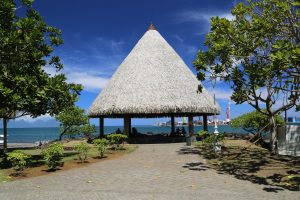

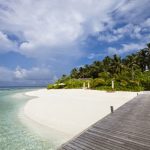

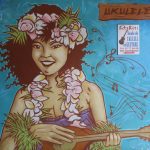
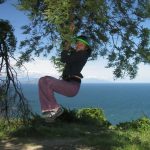
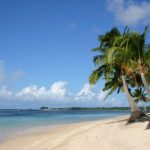

Leave a Reply